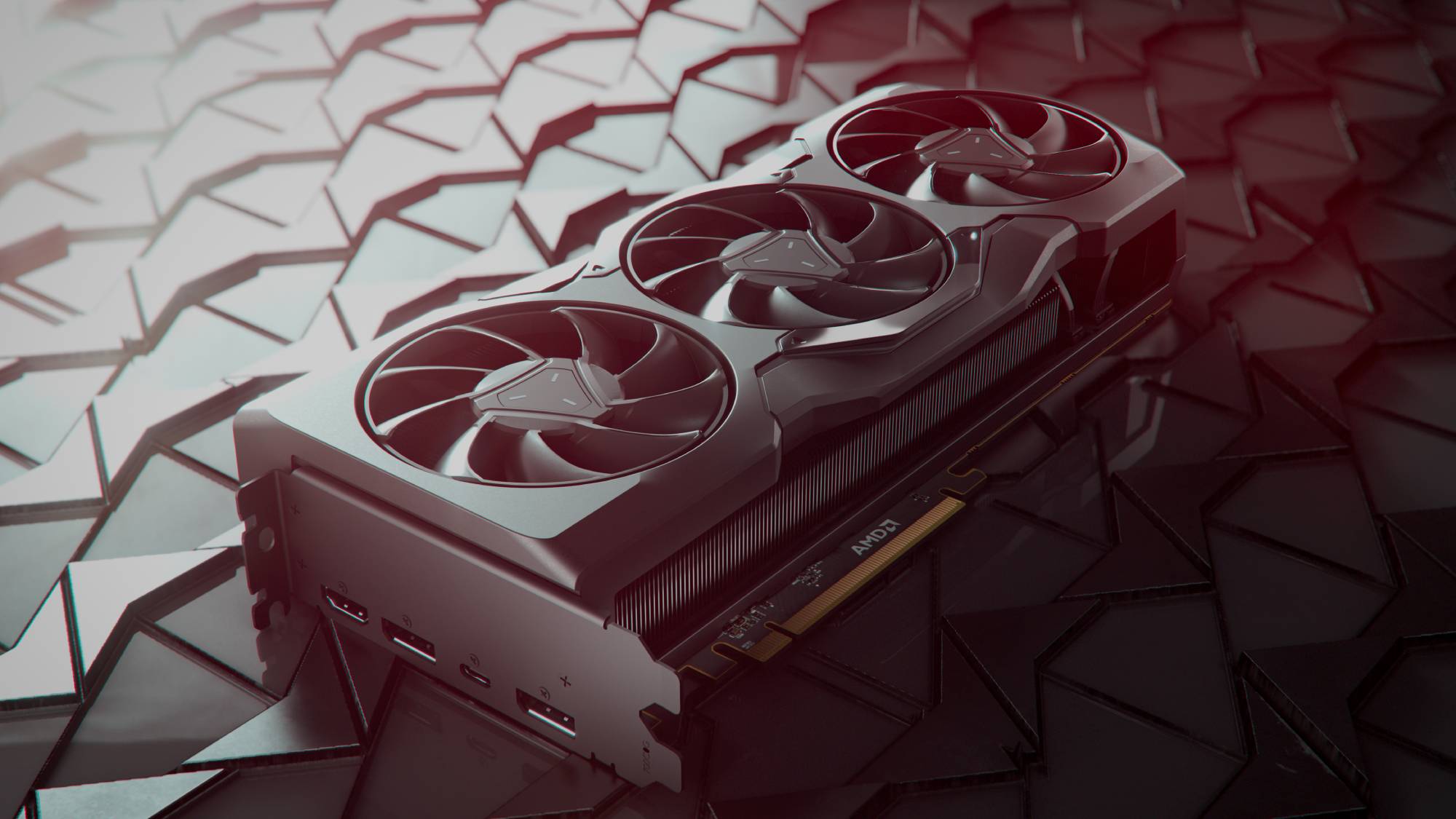AMD’s RDNA 4 graphics cards could use much slower memory than Nvidia’s next-gen GPUs – but that might be a good sign (kind of)
Killer mid-range GPUs with pricing kept as keen as possible?

Sign up for breaking news, reviews, opinion, top tech deals, and more.
You are now subscribed
Your newsletter sign-up was successful
AMD could use much slower video RAM than Nvidia when it comes to next-gen graphics cards, a new rumor contends.
This one is from regular leaker Kepler on X (formerly Twitter), who posted a very brief snippet to the effect that with RX 8000 graphics cards, AMD will only use GDDR6 VRAM running at 18Gbps – slower than some current RX 7000 models.
Only 18Gbps 🤔April 23, 2024
Kepler further clarifies that this will apply to all RDNA 4 GPUs – the entire line-up is set to be equipped with 18Gbps GDDR6.
Currently with the RDNA 3 family, AMD uses a mix of 18-20Gbps GDDR6, so technically, locking all models for the next-gen series to 18Gbps would not just be a failure to move forward – it’d represent a small step backwards.
Cue flailing of arms, gnashing of teeth, and so forth from some GPU enthusiasts calling out AMD for what would surely be a ludicrous move. Right? Especially when Nvidia is planning to use much faster GDDR7 RAM for its next-gen Blackwell GPUs, or at least with the higher-end boards anyway, or so runs the chatter from the grapevine.
Well, let’s think about all this a bit more – and why maybe it might not be such a crazy move for AMD to give GDDR7 a swerve with all of its next-gen GPUs.
Analysis: Could it all be in the pricing?
Firstly, this is just a rumor, so we should always be careful about leaping to any conclusions. Kepler could be plain wrong, and the plan might be to stick to the same way of working as RDNA 3 with VRAM (18-20Gbps), or indeed AMD could up the ante – we don’t know for sure, by any means.
Sign up for breaking news, reviews, opinion, top tech deals, and more.
However, assuming that this assertion is correct, it’s also possible Team Red might be looking to a design for RDNA 4 that makes up for any lack of speed on the memory front elsewhere (such as with beefier cache). Furthermore, this GDDR6 rumor could actually be a positive hint of what’s to come from AMD – sort of. How so?
Let’s move back a bit from focusing purely on how fast the VRAM may (or may not) be with RDNA 4 to take in the bigger picture. Remember, there’s been a very consistent thread of rumors that RX 8000 GPUs will top out at the mid-range – meaning there won’t be an AMD high-end competitor to the likes of Nvidia’s RTX 5090 or 5080.
If that (plentiful at this point) speculation is correct, the fastest RDNA 4 model will be a mid-range graphics card that’ll probably come close to the speed of the current RX 7900 XTX flagship (it’ll be faster than the 7900 XT, but just shy of the XTX, or that’s the theory).
What AMD will need to do to make this graphics card work – at least the way we see it – is attack on price. With RDNA 4 lacking a powerhouse GPU Team Red can sit back and be proud of to compete at the top-end, the firm will need to take a different angle – which, and this is just our guess, makes the most sense as a relatively powerful mid-range GPU that comes in as a truly tempting value proposition.
If AMD is using what would be the slowest VRAM it could get away with for next-gen graphics cards, maybe that’s part of this strategy. Remember, this is also the most affordable route to take, so could be part of keeping the cost of the bill of materials down – and ultimately the price tag for consumers.
Really, pricing is key, so for now, no matter what rumors we see about the spec of RDNA 4, we wouldn’t panic. AMD could still ensure that these kind of VRAM spec decisions make sense depending on other specs (cache, for example) and how pricing is pitched – and its next-gen GPUs can still easily be compelling contenders for our roundup of the best graphics cards.
Via Tom’s Hardware
You might also like
Darren is a freelancer writing news and features for TechRadar (and occasionally T3) across a broad range of computing topics including CPUs, GPUs, various other hardware, VPNs, antivirus and more. He has written about tech for the best part of three decades, and writes books in his spare time (his debut novel - 'I Know What You Did Last Supper' - was published by Hachette UK in 2013).